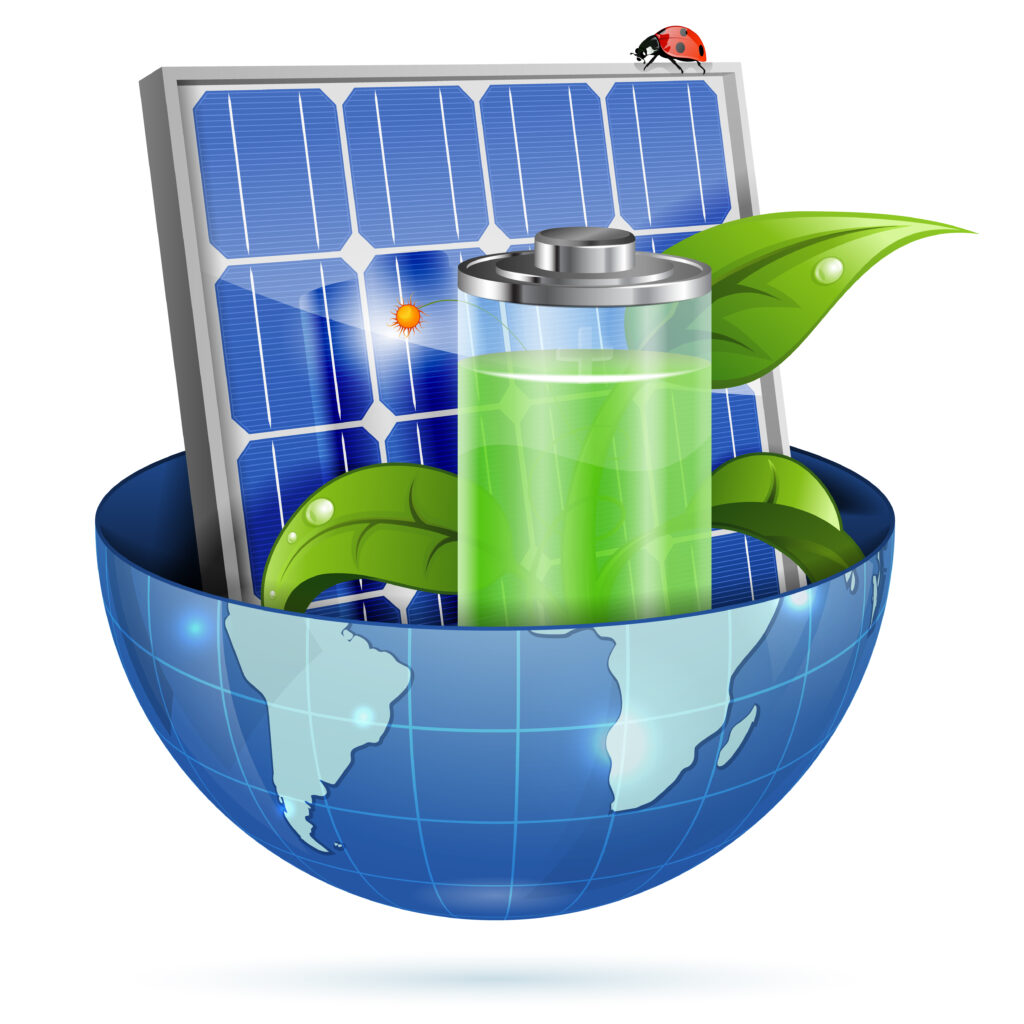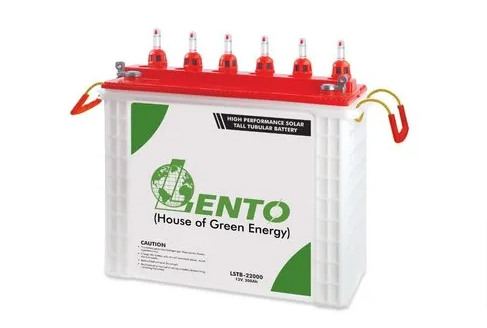Solar power systems are complete with the presence of solar batteries, as these serve as the fundamental building blocks of the system.
Solar batteries play a pivotal role in storing solar energy generated during the day, which can be used to power appliances and devices even when sunlight is unavailable.
The market is flooded with many solar batteries, each with unique specifications and features, making it difficult for consumers to decide. Solar storms are a must-have if you want to be more environmentally conscious and save money on your energy expenses.
They enable you to collect solar energy while the sun shines and utilize it when the sky is dark, or there is insufficient sunlight. Additionally, they decrease your reliance on the electricity grid and offer an alternate power source if there’s a blackout.
Our blog aims to comprehensively compare the various solar battery types available in the market, including an in-depth analysis of their benefits and drawbacks, to help you make an informed decision.
Types of Solar Batteries
Residential solar systems can benefit from various battery technologies with distinct features. They are
- Lead acid
- Lithium-ion
- Nickel-based
- Flow batteries
These solutions offer diverse backup power capabilities that warrant a closer examination. Here, we delve into the individual strengths and advantages of each type of solar battery.

Lithium-ion Batteries
Solar batteries primarily used are lithium-ion batteries due to their remarkable efficiency, requiring minimal maintenance and long lifespan.
They are lightweight and compact, making installation a breeze. With a high energy density, they can store more energy in a smaller space, thus saving precious real estate.
They can also withstand a wide temperature range and have a fast charging time. Additionally, these batteries are environmentally friendly and can be easily recycled.
Advantages of Lithium-ion Batteries
- A high level of efficiency
- The cost of maintenance is low
- Longevity
- A lightweight and compact design
- Energy density is high
- A wide range of temperatures
- Charging time is fast
- Recyclable and eco-friendly
Disadvantages of Lithium-ion Batteries
- Costly
- Temperature-sensitive
- Overcharging or deep discharging can damage it
Lead-acid Batteries
Regarding solar batteries, there’s no denying that lead-acid batteries are the most experienced and commonly used.
They offer cost-effectiveness and easy accessibility. However, it’s important to note that they come with their downsides.
They can be quite a burden due to their weight and require frequent upkeep. Additionally, their lifespan is relatively short. Another concern is the presence of harmful chemicals, which can harm the environment.
Advantages of Lead-acid Batteries
- Cost-effective
- Easily accessible
Disadvantages of Lead-acid Batteries
Saltwater Batteries
- Quite heavy
- Lifespan is short
- In need of regular maintenance
- Hazardous chemicals
The saltwater battery is the latest addition to the solar battery family, which has gained popularity for its environmentally friendly and non-toxic properties.
These batteries boast an extended lifespan, are lightweight, and require minimal upkeep. Despite these advantages, their recent introduction to the market may result in limited availability.
Advantages of Saltwater Batteries
- Eco-friendly and non-toxic
- A long life expectancy
- Compact and lightweight
- Maintenance is low.
Disadvantages of Saltwater Batteries
- The cost is higher than that of lead-acid batteries
- It is still a new product on the market
Nickel-cadmium Batteries
Solar batteries have come a long way over the years. While nickel-cadmium batteries were once popular, they have become outdated due to their negative environmental impact.
Although they are known for their high energy density and long lifespan, these batteries are inefficient and can release toxic chemicals into the environment.
As technology advances, more sustainable and efficient options are available for solar powering systems.
Advantages of Nickel-cadmium Batteries
- Energy density is high.
- A long life expectancy
- Charge and discharge rates are high
Disavantages of Nickel-cadmium Batteries
- Toxic chemicals
- Inefficient
Comparison of Different Types of Solar Batteries
It costs
Lorem ipsum dolor sit amet, consectetur adipiscing elit. Ut elit tellus, luctus nec ullamcorper mattis, pulvinar dapibu
While lead-acid batteries remain a cost-effective option for many, lithium-ion batteries offer a longer lifespan and reduced maintenance requirements.
While their initial purchase price may be higher, their long-term benefits make them a better choice. Alternatively, saltwater batteries present a viable option that falls between the cost spectrum of lead-acid and lithium-ion batteries.
While not as expensive as lithium-ion, they offer higher performance and reliability than lead-acid batteries. However, that nickel-cadmium batteries represent a cheap option, but they need more efficiency and sustainability than their counterparts.
s leo.
Achieving efficienc
When it comes to the realm of solar batteries, it is widely accepted among professionals that lithium-ion batteries are the premier option in terms of efficiency.
Saltwater batteries, lead-acid batteries, and nickel-cadmium batteries, respectively, closely follow these batteries.
Preventative maintenance
Lithium-ion batteries exhibit the lowest level of required upkeep in terms of maintenance, with saltwater and lead-acid batteries following suit.
Conversely, nickel-cadmium batteries necessitate the highest degree of care.
Estimated lifespan
Lithium-ion batteries boast the most extended service life, trailed by saltwater, lead-acid, and nickel-cadmium batteries.
Impact on the environment
Lithium-ion batteries boast the most extended service life, trailed by saltwater, lead-acid, and nickel-cadmium batteries.
Factors To Consider When Choosing A Solar Battery
There are numerous factors to consider when considering the purchase of a solar battery. These factors are diverse and may include the following:
Consumption of energy
The battery size and type that would suit your needs are contingent upon the quantum of energy you intend to accumulate.



